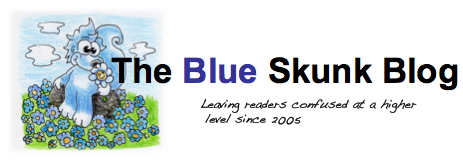What's the place of futurists?
 Sunday, November 8, 2009 at 05:31PM
Sunday, November 8, 2009 at 05:31PM Predicting the future is easy. It’s trying to figure what’s going on now that’s hard.
Fritz Dresser
 One of the more interesting characters in literature is Cassandra from Homer's Illiad. She was a Trojan woman so babe-i-licious that the god Apollo gave her the gift of prophecy. But when Cassie told horny Apollo to get lost, he put a little curse on her: While her predictions would be dead on, nobody, but nobody would believe them. Which turned out not to be a wise move by the Trojans, as you know.
One of the more interesting characters in literature is Cassandra from Homer's Illiad. She was a Trojan woman so babe-i-licious that the god Apollo gave her the gift of prophecy. But when Cassie told horny Apollo to get lost, he put a little curse on her: While her predictions would be dead on, nobody, but nobody would believe them. Which turned out not to be a wise move by the Trojans, as you know.
I thought about Cassandra reflecting on a comment to my post Dangerously irrelevant libraries. Michael Doyle eloquently responded:
Futurists are charlatans, and they know it, we know it, but it's fun to gaze into crystal balls, so we play the game.
Like fortune tellers and seers, they state the obvious in deep and mysterious ways, which is not hard, since the future is (in our heads, anyway) deep and mysterious.
Scott McLeod [whose futuristic comments about libraries lead to the comment] has a nice side job stirring folks up. So long as he doesn't get swallowed up in his own hype, he performs a necessary service, and he performs it well.
Any man who believes "we are currently preparing students for jobs that don't yet exist, using technologies that haven't been invented, in order to solve problems we don't even know are problems yet" then proceeds to predict the future anyway gives me pause. (I think the quote was Karl Fisch's, and to be fair, it was originally meant for a school presentation where hyperbole is encouraged.)
The last question posed (#9: "There is no conceivable future....") either reflects brilliant tongue-in-cheekiness, or a lack of imagination.
We are human. We eat. We breath. We poop and we pee, We play to make more of us. We get old. We die. We will always need food, and food will remain tied to the sun, the the earth, to the air.
The recent shift in ownership in this country is frightening; the unemployment rate is not just an accident of economics. We cannot educate ourselves out of replacing people with machines.
The McLeod's of our culture have found themselves a nice niche. If we ever took the time to deeply look at any of the questions posed above, we might have a wonderful discussion about what it means to be human, what it means to use a tool, what it means to place value on things ultimately useless.
Those kinds of discussions are not glittery enough to hold our attention, and we would not like the conclusions if we could sit still long enough to think them through. We've become more magpie than human.
I enjoy your blog because it encourages the kind of reflection shunned by so many other blogs. Posing a list of McLeodisms jars the reader seeking BlueSkunkisms, but it's a good reminder of what many of the tech elite believe.
Since I often play the role of futurist/charlatan in my own talks, Michael's strong words made me pause. What impact does predicting, warning, excoriating, and building dread or hope in teachers and librarians really have in how we actually act?
By describing the future are we creating a better future ... or is it just a coping mechanism for dealing with the present? Do we do a disservice to ourselves by not fully processing the implications of future trends and putting perspective to them?
Michael, thank you for your comments. You've give me deep pause.
By the way, Cassandra came to a rather bad end. She was raped, lost the power of prophecy, was taken to Greece as a war prize, and was promptly whacked with an axe by a jealous wife (as I remember). Perhaps futurists have never been all that popular.
Cassandra warns the Trojans. Engraving by Bernard Picart (1673-1733)
Online Source: http://hsa.brown.edu/maicar/Cassandra.html










